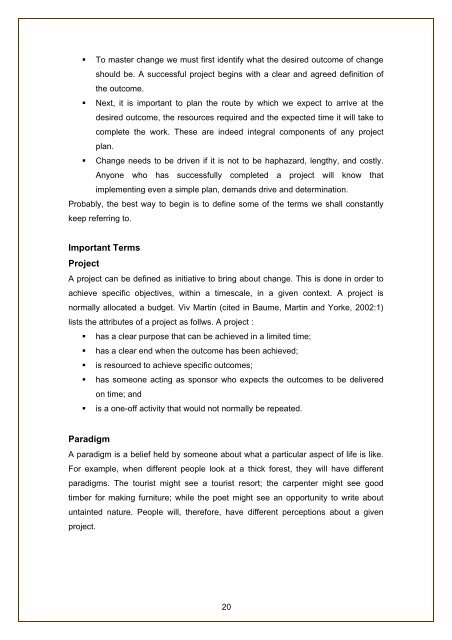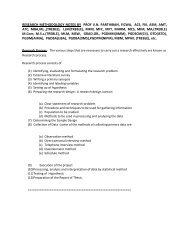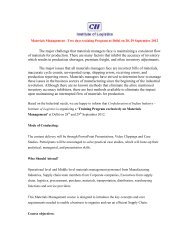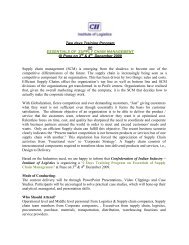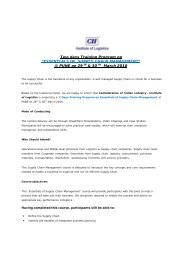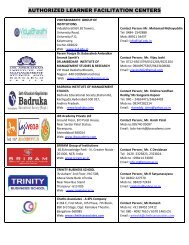successful project management - Commonwealth of Learning
successful project management - Commonwealth of Learning
successful project management - Commonwealth of Learning
You also want an ePaper? Increase the reach of your titles
YUMPU automatically turns print PDFs into web optimized ePapers that Google loves.
• To master change we must first identify what the desired outcome <strong>of</strong> change<br />
should be. A <strong>successful</strong> <strong>project</strong> begins with a clear and agreed definition <strong>of</strong><br />
the outcome.<br />
• Next, it is important to plan the route by which we expect to arrive at the<br />
desired outcome, the resources required and the expected time it will take to<br />
complete the work. These are indeed integral components <strong>of</strong> any <strong>project</strong><br />
plan.<br />
• Change needs to be driven if it is not to be haphazard, lengthy, and costly.<br />
Anyone who has <strong>successful</strong>ly completed a <strong>project</strong> will know that<br />
implementing even a simple plan, demands drive and determination.<br />
Probably, the best way to begin is to define some <strong>of</strong> the terms we shall constantly<br />
keep referring to.<br />
Important Terms<br />
Project<br />
A <strong>project</strong> can be defined as initiative to bring about change. This is done in order to<br />
achieve specific objectives, within a timescale, in a given context. A <strong>project</strong> is<br />
normally allocated a budget. Viv Martin (cited in Baume, Martin and Yorke, 2002:1)<br />
lists the attributes <strong>of</strong> a <strong>project</strong> as follws. A <strong>project</strong> :<br />
• has a clear purpose that can be achieved in a limited time;<br />
• has a clear end when the outcome has been achieved;<br />
• is resourced to achieve specific outcomes;<br />
• has someone acting as sponsor who expects the outcomes to be delivered<br />
on time; and<br />
• is a one-<strong>of</strong>f activity that would not normally be repeated.<br />
Paradigm<br />
A paradigm is a belief held by someone about what a particular aspect <strong>of</strong> life is like.<br />
For example, when different people look at a thick forest, they will have different<br />
paradigms. The tourist might see a tourist resort; the carpenter might see good<br />
timber for making furniture; while the poet might see an opportunity to write about<br />
untainted nature. People will, therefore, have different perceptions about a given<br />
<strong>project</strong>.<br />
20


